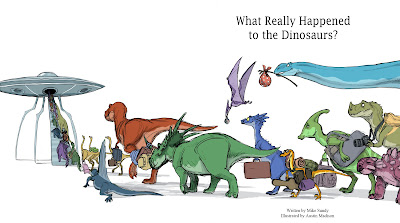I am a masculine thinker according to your post (I'm still not sure who decides which qualities are feminine and which are masculine).
The attributes associated with masculine and feminine are traditional to most cultures and expressly stated within esoteric traditions. Easter traditions, specifically, discuss the differences between these currents in the guise of yin and yang. :yinyang:
The way I see it, there is no way to know anything that we haven't observed to be absolutely true. Thus logically we must assess probabilities when we ponder two solution. Evidence helps us set those probabilities.
Have you ever seen an idea? Have you ever seen a thought? No? How do you know they are real? Just because you experienced them? Is that proof of anything within the literalist/rationalist/reductionist paradigm? Does experience account for anything unless it can be documented and repeated? You and I have danced around this circle before. You will suggest that we can document electrical impulses in the brain which is by no standard documenting thoughts or even proof of thoughts. So how do I convey to you what I know through direct experience alone?
Conversely anything you see is not actually seeing anything but your brain's attempt to decode the input of photons which have bounced off of objects made of empty space inhabited by tiny fluctuations of energy which are both point-like particles AND waves depending on how the observer attempts to interpret them. Look into the double slit experiment.
So the majority of what you see as empirically real or true is actually quite abstract when seen holistically. If you, by faith or the dictates of consensus reality, accept that an object is solid you are believing a lie from the start, and if you only believe what may be directly observed you are forced to believe that lie. Unless, of course, you take the word of someone else who says they can see it for what it really is. This is the fallacy built into authoritarianism and science is not immune. So although you regard science as antithetical to articles of faith it is built upon them. You are required to invest faith in authorities of various specialized disciplines or continue to be limited by your own abilities to observe.
It could be said there is very little difference between science and spirituality on this point. Both involve faith in authority figures. We could argue why we prefer one over the other and that would likely come down to what influences most effected our perceptions of the world. To my eyes, both paths are polluted by bias so personal discernment must come into play.
To me, personal discernment trumps all else. I don't care what any expert says if it doesn't make sense within my world view. That doesn't mean I flagrantly disregard evidence. That would be just as ignorant as accepting anothers view without question. But within my world view personal experience is king. And much that I have experienced is beyond rational explanation or direct documentation. Because of that I realize that the literalist/rationalist/reductionist paradigm cannot help but be incomplete.
I see "intention" and the ability to intend as the most complex thing that we have yet observed....
Beings that have intention such as ourselves are immensely complex. Even if we gave the Universe a trillion years, it is unlikely that it would ever
randomly assemble a conscious agent, human or otherwise. In my mind, any explanation for complexity that
presupposes without explanation something this improbable and complex has raised a bigger question than it tried to answer.
I'm not sure why you see intention as complex. Even the most primitive life forms express intention in all actions. Do they not intend to move, or eat, or reproduce? Don't plants reach toward the sun? I suspect you will say they are behaving as little machines programmed to behave in such ways. What then separates their intentions from ours?
Is it intention which draws bodies with mass together or is it gravity? What is the difference between the two? Science still doesn't know what gravity is even though we can observe it's effects all around us. They create fairy tales they believe may explain gravity as an exchange of particles called gravitons. Yet there is no direct evidence so they may as well state that angels push particle together.
We find ourselves within a vast self-organizing universe. The evidence of the tendency toward order is everywhere. Is that the result of dead, mindless physical "laws" or are those "laws" the effect of intention? No one can answer that question but you are free to put your faith in the literalist/rationalist/reductionist authorities -
which presupposes without explanation the existence of "laws"! :huh:
The existence of common themes in Evolution is amazing...
...Flight and camouflage are good ways to make a living, so it is rather unsurprising that many organisms converge on these niches in the same way that humans independently converged on written language and agricultural lifestyles.
...Take for example the case of gliding frogs and colugos. When an organism takes up life in the trees, falling becomes a serious risk. A risk that gliding can subdue. Thus those organisms grew skin flaps that they use to glide. Evolution uses what is already there and uses it to suit the needs of new environments.
Are you suggesting here that the frogs, knowing that falls are dangerous, decided to grow skin flaps they could use to glide? Or that by chance random mutation one frog grew them and that survival advantage was so great it allowed him to survive and reproduce so well that his DNA became the standard? Do we put our faith in the rational intention the frogs would have to acquire the advantage of the ability to glide, or do we put our faith in random chance? Hmmm...
Of course, I'm not suggesting the frogs, with their little frog minds, worked out the rules of aerodynamics and calculated how to glide. But something did. The ability for insects to fly cannot be explained with such a blanket statement about "common themes in Evolution". Yes, we see wings on many species, but each species had different body shapes, energy limitations and lag issues to overcome. Not even to mention the appearance of wings to start with. If you would rather give all that credit to chance mutation you are very much a man of faith.
I will make no suggestions as to how or why species developed incredible abilities involving very specific complex problems to overcome, but I recognize that chance does not fit the bill. We have animals that literally transform within their lifetime, that go from breathing through gills to developing lungs, that transform from a worm-like body to a flying insect. Even looking at a mantis you can see the intention of those wings growing. They must form over multiple steps but there is an end goal built into their DNA. I do not see chance spawning such a multi-staged process. And I don't see the survival advantage to the vulnerable state they enter to bring about these changes. What I do see is intention.
As you said, I don't have the time (or intention) to write a book so we'll leave it at that. :clown:




































